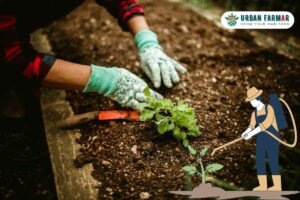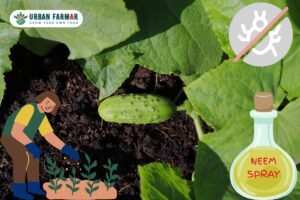Medicinal Plants: India has a long-standing legacy of using medicinal plants in its traditional healing systems, especially Ayurveda. With a growing shift towards organic lifestyles, many urban households are turning their balconies, terraces, and backyards into green spaces filled with plants that not only look good but heal as well. Starting a medicinal garden at home means gaining access to nature’s pharmacy—right outside your door.
This detailed guide explores the top 10 medicinal plants you can easily grow in your Indian home garden. We’ll dive into their health benefits, cultural significance, growing conditions, traditional usage, and expert tips for maximizing yield and efficacy.
1. Tulsi (Holy Basil) – The Sacred Healer
Tulsi is revered in Indian culture not just for its spiritual significance, but also for its impressive medicinal properties. Often found in courtyards and balconies, Tulsi is known as the “Queen of Herbs” in Ayurveda.
Health Benefits:
- Strengthens the immune system and combats bacterial, viral, and fungal infections.
- Acts as a natural adaptogen, reducing stress and anxiety.
- Promotes respiratory health, relieves asthma and bronchitis.
- Improves digestion and detoxifies the liver.
Growing Conditions:
- Sunlight: Needs 4–6 hours of direct sunlight daily.
- Soil: Prefers well-drained, loamy soil rich in organic matter.
- Watering: Water moderately, allowing soil to dry slightly between watering.
- Container Size: Minimum 10–12 inch pot.
Traditional Uses:
- Tulsi tea is used to relieve cold, cough, and flu symptoms.
- Crushed leaves are applied to insect bites.
- Fresh leaves are chewed daily for immunity.
Expert Tips:
- Pinch off flowers to encourage leaf growth.
- Combine with black pepper and honey for a powerful herbal tonic.
2. Aloe Vera – The Miracle Skin Plant
Aloe Vera is a succulent known for its fleshy leaves filled with soothing gel. It’s a popular indoor plant for both aesthetic and medicinal use.
Health Benefits:
- Speeds up wound healing and soothes sunburn.
- Aids digestion and alleviates constipation.
- Acts as a skin hydrator and natural anti-aging agent.
Growing Conditions:
- Sunlight: Bright, indirect sunlight is ideal.
- Soil: Sandy or cactus mix for excellent drainage.
- Watering: Water thoroughly but infrequently. Allow the soil to dry between watering.
- Container: A wide, shallow pot with drainage holes.
Traditional Uses:
- Gel applied on cuts, acne, or rashes.
- Juice consumed (in small amounts) for detox.
- Used in face and hair packs.
Expert Tips:
- Avoid overwatering to prevent root rot.
- Use mature leaves from the outer part of the plant.
3. Mint (Pudina) – The Cooling Digestive
Mint is a fragrant herb that’s easy to grow and quick to spread. It’s widely used in Indian cooking and herbal remedies.
Health Benefits:
- Soothes indigestion and bloating.
- Relieves tension headaches and nausea.
- Provides a cooling effect in summer.
Growing Conditions:
- Sunlight: Prefers partial sunlight.
- Soil: Rich, moist, and well-drained.
- Watering: Needs consistent moisture.
- Container: Use a deep, wide container to prevent spreading.
Traditional Uses:
- Leaves used in chutneys, raitas, and teas.
- Crushed mint applied to temples to relieve headaches.
- Steam inhalation with mint leaves for sinus relief.
Expert Tips:
- Prune frequently to avoid overgrowth.
- Companion plant with cabbage or tomatoes for pest control.
Giloy (Guduchi) – The Immunity Booster
Giloy is a climbing shrub commonly used in Ayurvedic formulations. Known as “Amrita” or nectar of life, it has powerful adaptogenic and antioxidant properties.
Health Benefits:
- Boosts immunity and protects against fever.
- Helps in diabetes management.
- Supports liver function and detox.
Growing Conditions:
- Sunlight: Needs full sun to partial shade.
- Soil: Moist, well-drained soil with compost.
- Watering: Water moderately; do not overwater.
- Support: Requires a trellis or fence to climb.
Traditional Uses:
- Decoction made from stems to treat dengue, malaria, and viral fevers.
- Extract used with honey for cough and cold.
Expert Tips:
- Harvest stems when the plant is mature (6–8 months old).
- Avoid growing near pollutants as the plant absorbs toxins.
5. Turmeric (Haldi) – The Golden Healer
Turmeric is a rhizome with potent anti-inflammatory and antiseptic properties. It is integral to Indian cuisine, skincare, and medicine.
Health Benefits:
- Fights inflammation and arthritis.
- Natural antiseptic for cuts and wounds.
- Boosts brain function and reduces oxidative stress.
Growing Conditions:
- Sunlight: Prefers partial to full sunlight.
- Soil: Loamy, rich in compost.
- Watering: Requires consistent moisture.
- Harvest Time: 8–10 months after planting.
Traditional Uses:
- Used in golden milk (haldi doodh).
- Paste applied for acne and wounds.
- Mixed in oil for pain relief massages.
Expert Tips:
- Save a portion of your harvest for next season’s planting.
- Use fresh turmeric root for better potency than powder.
6. Curry Leaves (Kadi Patta) – The Flavorful Healer
Curry leaves are more than just a kitchen essential. Their medicinal properties support heart, liver, and skin health.
Health Benefits:
- Controls blood sugar and cholesterol.
- Supports hair growth and reduces greying.
- Boosts digestion and reduces nausea.
Growing Conditions:
- Sunlight: Requires full sunlight.
- Soil: Sandy-loam with good drainage.
- Watering: Water when topsoil feels dry.
Traditional Uses:
- Leaves used in tempering (tadka) for dishes.
- Oil infusion used to treat dandruff.
- Dried leaf powder consumed for blood sugar control.
Expert Tips:
- Prune regularly to encourage bushy growth.
- Fertilize monthly with compost or cow dung.
7. Lemongrass – The Fragrant Detoxifier
Lemongrass is a fast-growing herb with a strong citrus aroma, widely used in teas and essential oils.
Health Benefits:
- Eases anxiety and insomnia.
- Aids digestion and detoxifies the body.
- Natural insect repellent.
Growing Conditions:
- Sunlight: Needs 6–8 hours of direct sun.
- Soil: Well-drained, loamy soil.
- Watering: Keep soil moist but not soggy.
Traditional Uses:
- Lemongrass tea for stress relief.
- Oil applied to repel mosquitoes.
- Poultice for muscle pain relief.
Expert Tips:
- Harvest the lower stalks for best flavor.
- Keep the plant trimmed to prevent overgrowth.
8. Neem – The Divine Purifier
Neem is often referred to as the village pharmacy. Every part of the neem tree—leaves, bark, seeds—has medicinal value.
Health Benefits:
- Treats skin disorders like acne and eczema.
- Boosts immunity and purifies blood.
- Acts as a natural pesticide and anti-fungal agent.
Growing Conditions:
- Sunlight: Full sun exposure.
- Soil: Well-drained sandy soil.
- Watering: Minimal; drought-tolerant once established.
Traditional Uses:
- Neem water used for bathing and skincare.
- Dried leaves used as insect repellent in closets.
- Neem oil for dental and scalp care.
Expert Tips:
- Plant away from walls or buildings as roots spread wide.
- Use compost to enrich soil during planting.
9. Ajwain (Carom) – The Digestive Hero
Ajwain is known for its pungent flavor and powerful medicinal properties, especially for digestive health.
Health Benefits:
- Treats indigestion, acidity, and flatulence.
- Relieves cold, cough, and asthma.
- Natural anti-fungal and antibacterial agent.
Growing Conditions:
- Sunlight: Requires 5–6 hours of direct sunlight.
- Soil: Loamy, well-drained, slightly alkaline.
- Watering: Water when topsoil dries out.
Traditional Uses:
- Ajwain tea or water for stomach issues.
- Crushed seeds used in herbal poultices.
- Steam inhalation for nasal congestion.
Expert Tips:
- Harvest when flower heads dry out.
- Use fresh leaves for stronger flavor and potency.
10. Brahmi (Water Hyssop) – The Brain Tonic
Brahmi is a revered nootropic herb in Ayurveda known for improving cognitive functions and reducing stress.
Health Benefits:
- Enhances memory, concentration, and learning.
- Calms the nervous system.
- Reduces symptoms of anxiety and depression.
Growing Conditions:
- Sunlight: Prefers partial shade.
- Soil: Moist, clayey or loamy soil.
- Watering: Needs constantly moist soil.
Traditional Uses:
- Brahmi oil used for head massage.
- Decoction made for brain tonic.
- Leaves used in juices or salads.
Expert Tips:
- Great for water gardens or near ponds.
- Regular pruning promotes fuller growth.
Final Thoughts: Reclaiming Ancient Wellness in Modern Homes
Creating a medicinal garden is more than just growing plants—it’s about reconnecting with ancient traditions, nurturing health naturally, and building a sustainable lifestyle. These 10 plants are ideal for Indian homes due to their adaptability, climate compatibility, and deep-rooted heritage in Indian healing systems.
Not only will you benefit from the healing properties of these herbs, but you’ll also contribute to a greener planet and a more conscious lifestyle.
Ready to start your home herbal garden? Explore premium seeds, planters, organic soil, and natural fertilizers at UrbanFarmar. Grow with love, grow with purpose.
Let nature be your medicine cabinet!




